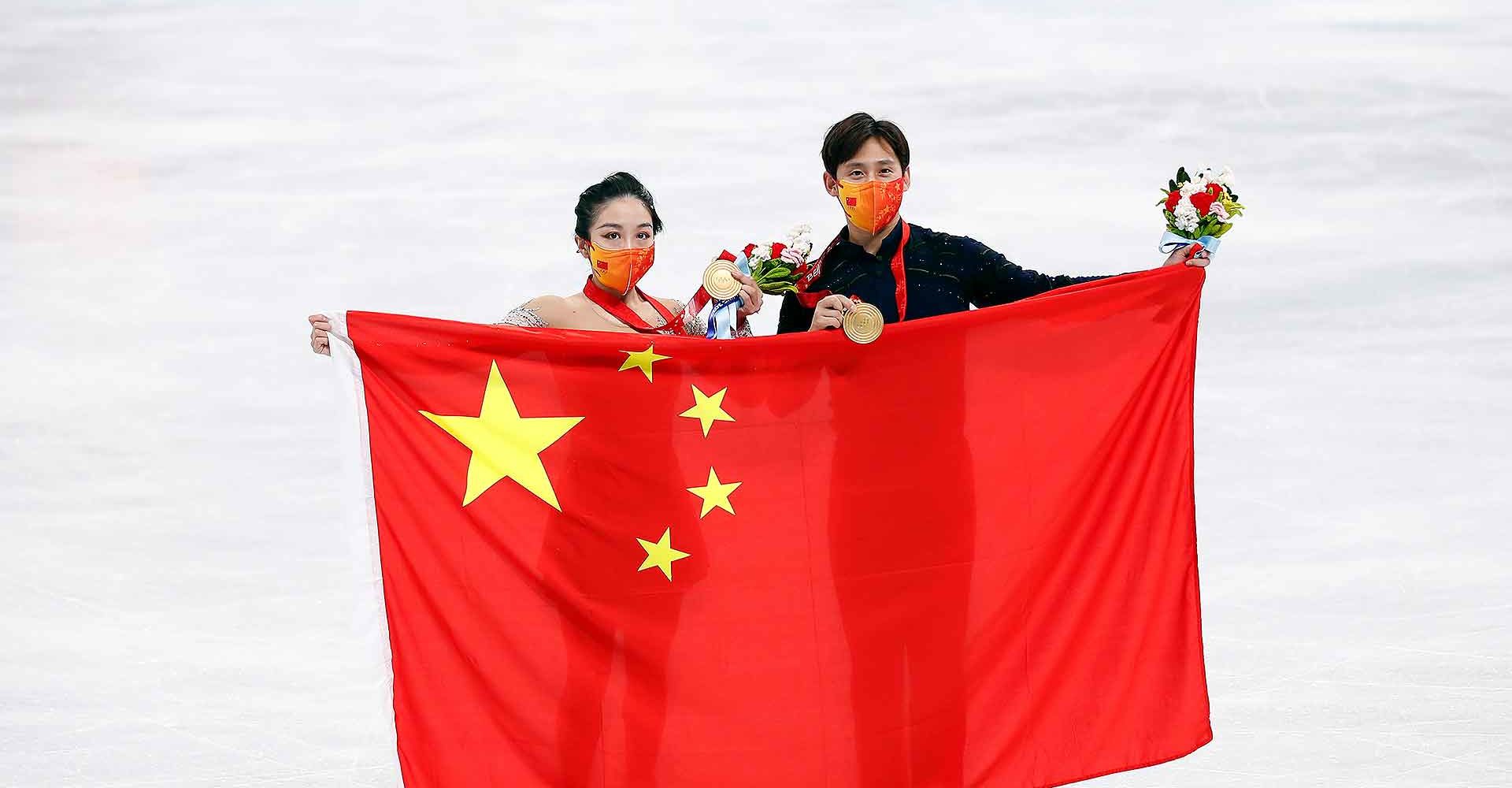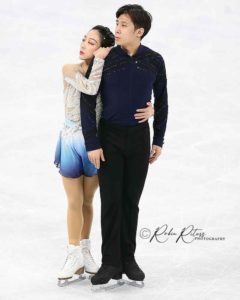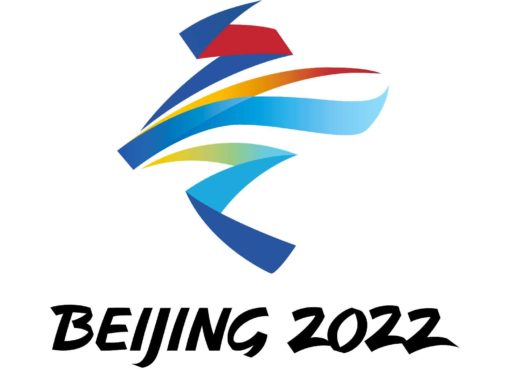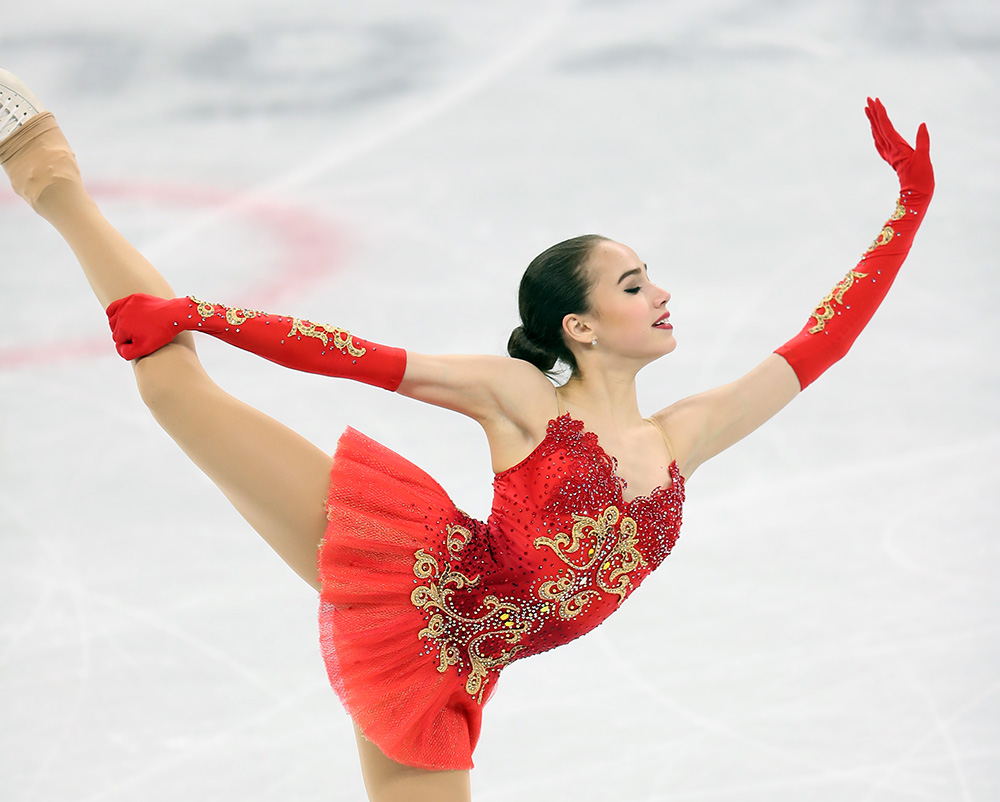By Scott Mammoser, Team FSO contributing writer
Photos by Robin Ritoss
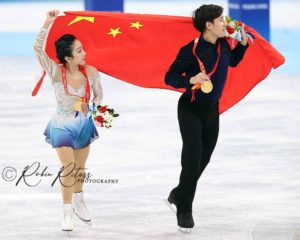 China won nine gold medals at the Beijing Winter Games, but perhaps none will be more remembered than that of pairs skaters Wenjing Sui and Cong Han.
China won nine gold medals at the Beijing Winter Games, but perhaps none will be more remembered than that of pairs skaters Wenjing Sui and Cong Han.
The pairs team entered the event as silver medalists from the 2018 PyeongChang Olympics, where they were four tenths of a point from the gold. They were twice world champions and owned a collection of gold medals from Four Continents, Grand Prix Finals and Junior World Championships. In 2015, they were silver medalists when Shanghai hosted the World Championships. That summer, Beijing won the right to host the 2022 Olympics.
From that point, it seemed as if they were on a fast track to be the face of the Games in the world’s most-populous nation.
The road was anything but smooth. Sui, who is 26, had surgery on her feet in 2016, then a stress fracture in her foot kept the team out of the 2018 Grand Prix season. The 29-year-old Han endured hip surgery in August 2020, and the couple only trained for eight weeks, prior to winning the silver medal at last March’s Stockholm World Championships. Add on to that the pandemic and China’s strict precautions.
 On Saturday, the Harbin natives took the ice in Capital Indoor Stadium – the rink where they trained for their entire adult lives under 2010 gold medalist Hongbo Zhao. As in 2018, they were the leaders after the short program. Once again, they missed a similar Salchow that cost them the gold in PyeongChang. This time, however, it would be six tenths of a point that lifted them to the elusive top spot of the podium.
On Saturday, the Harbin natives took the ice in Capital Indoor Stadium – the rink where they trained for their entire adult lives under 2010 gold medalist Hongbo Zhao. As in 2018, they were the leaders after the short program. Once again, they missed a similar Salchow that cost them the gold in PyeongChang. This time, however, it would be six tenths of a point that lifted them to the elusive top spot of the podium.
“This is an unforgettable night,” Han said during the press conference. “We realized our dreams in our homeland. We achieved the ninth gold medal for the delegation. We put the icing on the cake, and we are proud of that. From the younger years, we were the underdogs because people thought we could not do pairs skating due to our body shapes. People have doubts because we have similar heights.”
Traditionally, male pairs skaters tower over the women. Silver medalist Vladimir Morozov, for example, is 6-foot-3 and one foot taller than his partner. Han is 5-foot-7, and Sui is 4-foot-11.
Sui added that their “Bridge Over Troubled Water” program signified that their skating can bridge together people all over the world. Sui also noted that the Chinese short track speed skaters who train at the same venue in Beijing came to support them, and she cheered for them from the stands when they won the mixed team relay gold medal.
Nearly every Olympics boasts an iconic moment for the host country. Australia’s Cathy Freeman’s 400-meter win at the Summer Olympics in Sydney in 2000; Canada’s Sidney Crosby’s overtime goal in the final at the Winter Olympics in Vancouver in 2010; and Brazil’s Neymar’s winning penalty kick for the gold medal in 2016 Summer Olympics in Rio are forever immortalized. Fourteen years ago, when Beijing hosted the Summer Games, all eyes were on Xiang Liu. The reigning Olympic gold medalist and world champion in the 110-meter hurdles carried the weight of the nation on his shoulders when he pulled up with an injury. There were plenty of other Chinese champions from 2008, but the most-publicized victory never happened. This time, Sui and Han delivered, through all of their adversity and 15 years of partnership.
“This secures our legacy in China,” Han added. “Many people have supported us in our journey. Many teammates have left us, but they still contributed to our journey. I really miss them and are grateful for them.”


